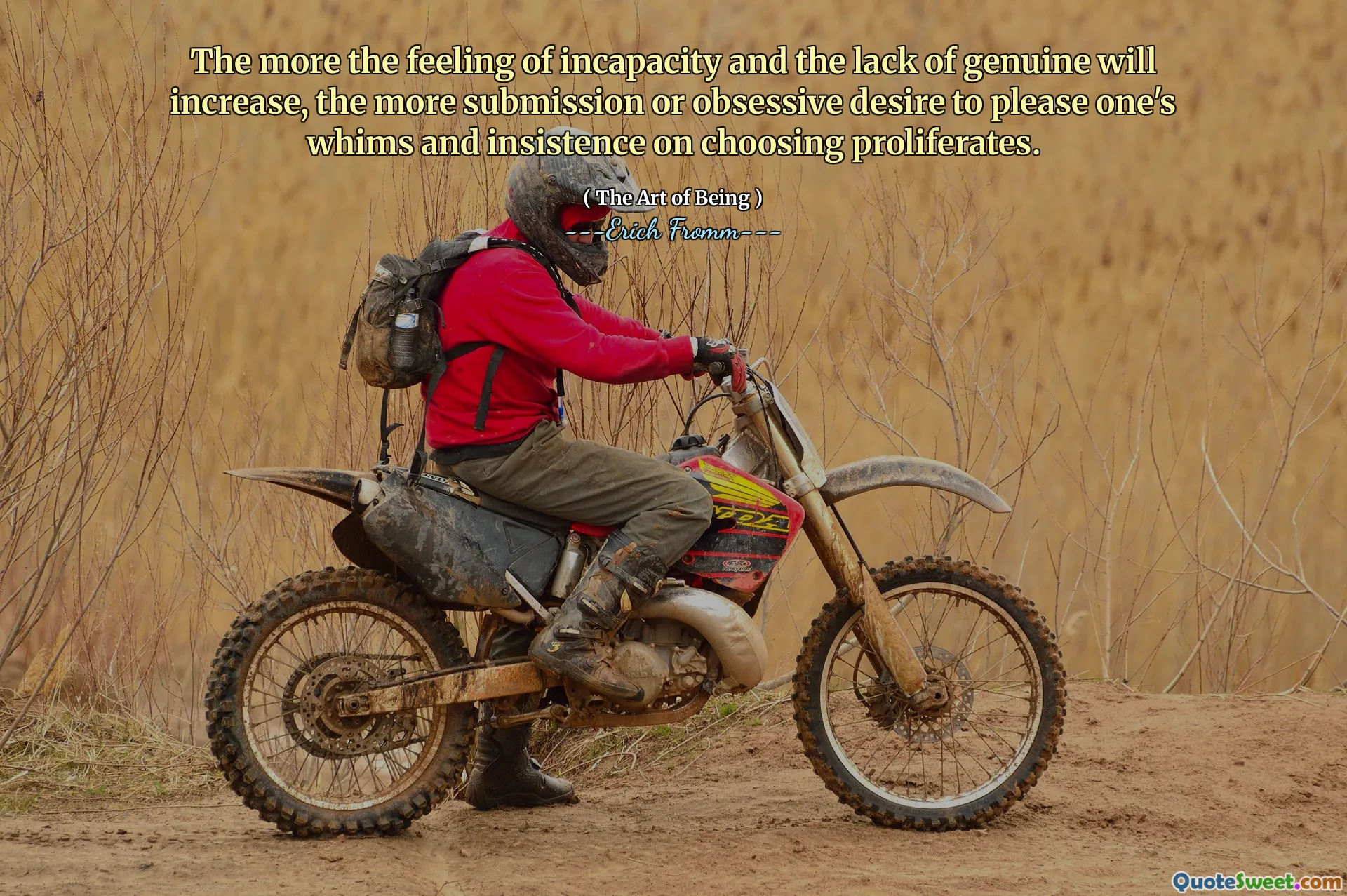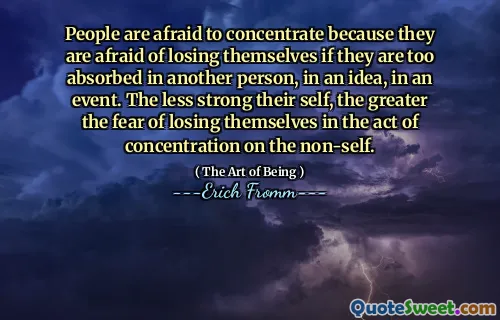
The more the feeling of incapacity and the lack of genuine will increase, the more submission or obsessive desire to please one's whims and insistence on choosing proliferates.
This quote delves into the intricate relationship between inner sense of helplessness and external behaviors that stem from it. When individuals perceive themselves as powerless or incapable, their natural response can often be a retreat into submissiveness or an obsessive pursuit to satisfy fleeting desires. This dynamic reflects a psychological spiral where feelings of inadequacy diminish one's authentic willpower, leading to a reliance on external validation or compulsive actions as a means of coping or gaining a semblance of control.
From a broader perspective, this phenomenon is rooted in the human struggle to find agency within oneself. When authentic agency is compromised—due to internal doubts or societal pressures—the individual may unconsciously substitute genuine decision-making with superficial choices aimed at momentary gratification. Such behavior, although seemingly less damaging on the surface, can entrench feelings of dependency, frustration, and emotional stagnation.
Recognizing this pattern is crucial for personal growth. It highlights the importance of cultivating self-awareness and an inner sense of strength, rather than yielding to external influences or base impulses. By nurturing inner resilience, one can gradually rebuild genuine willpower and break free from the cycle of misguided submission and compulsive indulgence. This understanding aligns with the teachings in Erich Fromm’s work, emphasizing the significance of developing an authentic, autonomous self to lead a fulfilling and meaningful life.
Overall, the quote underscores a universal truth: true empowerment begins within. Without it, external behaviors become strategies of survival that often undermine one's true self and exacerbate feelings of helplessness.







